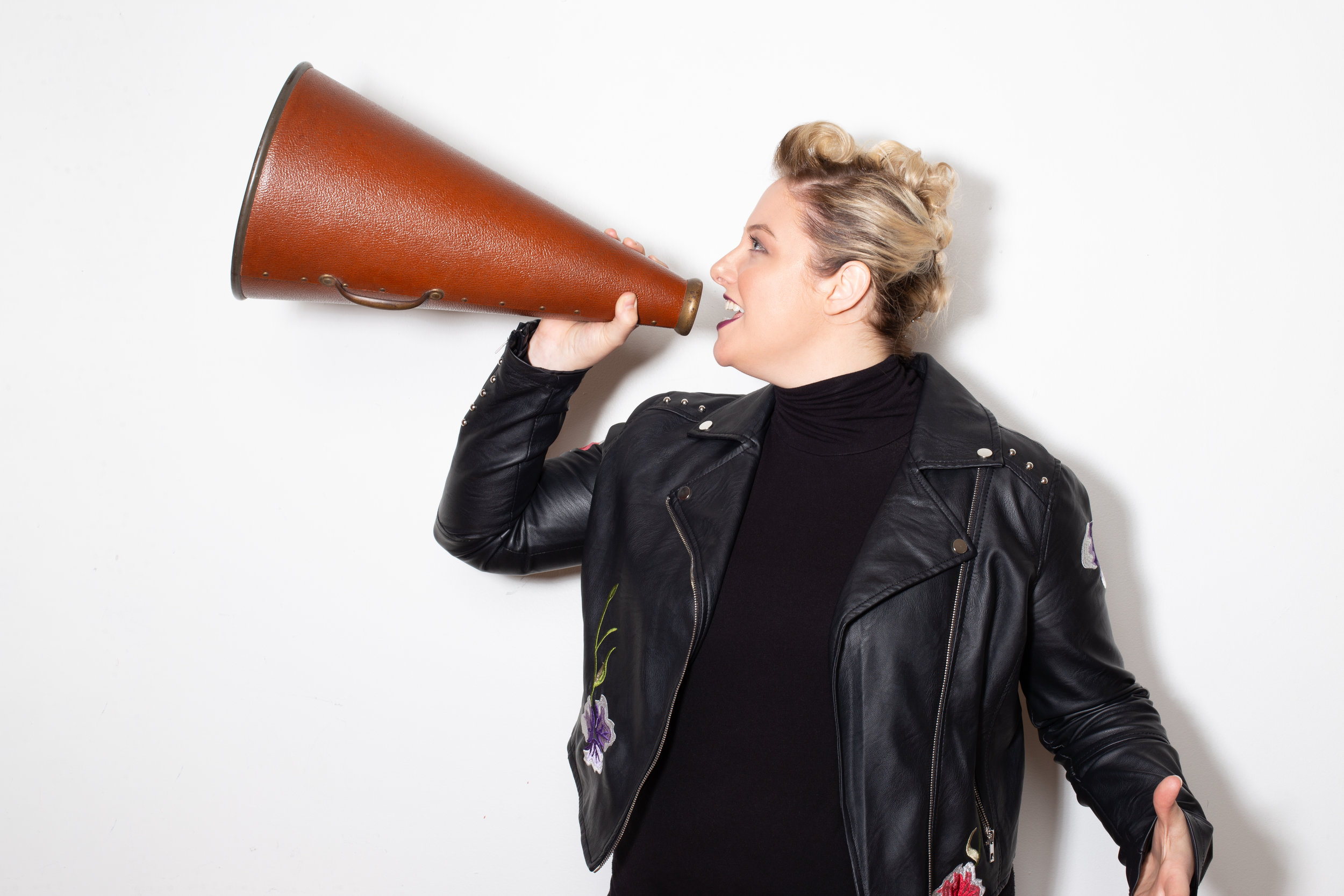About
This site is run by Katie Martell. I’m a marketing consultant, speaker and writer who thinks faux-feminism in marketing has dangerous implications for the women’s rights movement.
Katie Martell, on-demand marketing consultant and vintage megaphone aficionado (jk)
“Profiting from these ideals while embodying the opposite is not clever, it's exploitation.”
INTRO TO FEMVERTISING
Once you see it, you can’t unsee it.
From 15-second deodorant spots to hashtag activism, global financial firms to retailers. It’s rampant. Our industry calls it “femvertising” and it refers to any use of feminism in advertising.
On the surface, these ads are uplifting, empowering, and perform well for the brands who deploy them. They can earn brands a slew of positive press, a pile of industry awards, even humanitarian recognition.
Now, once the optimist in me stopped doing cartwheels of celebration, the rampant skeptic in me started looking behind the scenes of these glorified campaigns, often praised for their “impact on the conversation” and their “support of women’s rights.”
I found lawsuits about discrimination against women, all-male executive teams, and more examples of the exact infractions the women’s rights movement seeks to put an end to.
This lip service by companies not only creates an illusion of progress, it cheapens the movement for equal rights.
What is faux-feminism?
In short, it’s the exploitation of feminism by the advertising industry.
It’s a mistake brands make to try and seem feminist when convenient, like on International Women’s Day, when behind the scenes their behavior, company policies, diversity stats, and more tell a very different story.
So what?
Faux-feminism redefines feminism in a dangerous way - diminishing it down to a tagline. Message - without action - creates an illusion of progress in our struggle for women's rights.
This type of advertising tricks us into thinking society is more progressive than it truly is.
McKinsey found that men are more likely to think the workplace is equitable; women see a workplace that is less fair and offers less support.
This is a diversity blind spot helped in part by the false narratives created by this type of marketing. We can’t solve problems that we don’t see or understand clearly.
Problems like:
Women make 79 cents to the male dollar, but Black women are paid 62 cents, Latinas 54 cents, for every dollar paid to white men. Source
Women are 47% of the workforce yet hold 20% of C-level roles. Source
1 in 4 women return to work within two weeks of giving birth (US Dept of Labor)
1 in 3 women (18-34) report being sexually harassed at work. Source.
Hundreds of thousands of rape kits sit untested
Every 98 seconds someone in the US is raped. Source.
Only 11% of creative directors in advertising are women. The world’s six top ad groups are run by men. Source
Females are only 34% of all speaking roles in top-grossing 100 films Source
Globally, 130M girls worldwide do not go to school (UNESCO). Millions more are child brides, and live in countries where domestic violence is note a crime.
The point:
There is a real and present danger to the ongoing fight for equality if we accept this trend of femvertising without holding companies accountable.
WHY BUILD THIS SITE?
This site was built to expose and educate consumers and marketers alike on the impact of femvertising. It stems from my personal opinion, my career as a marketer, and my appreciation for the efforts of feminists through history.
I’m most inspired by the work of pioneering activist, speaker, and writer, Jean Kilbourne, whose decades of work is the most comprehensive examination of our industry’s shameful treatment of women. Watch her TEDx talk.
Jean asked “what is the impact of advertising on women?”
I ask “what is the impact of advertising on feminism?”
A PLEA FOR YOU
My plea for consumers is to never take any advertising at face value, and to vote with your wallet to support brands who champion equality.
My plea for brands is to simply do better and act responsibly. You risk harming a very real movement to achieve the basic equality women first sought at the turn of the last century - and still fight for today around the world.
TL;DR please don’t fuck this up for us.
We don't need feminist advertising.
We need a business culture that is not perpetuating these problems. We need REAL steps taken by companies to ensure equality, not lip service in their marketing.
What can you do?
Share this site. Send me a campaign to feature here. Book me to speak at your conference, company, organization or school. Vote with your wallet. Push back internally against your agency or a client who simply doesn’t recognize the damage they’re about to inflict. Take real action.
CEOs, sign the pledge to take action for diversity & inclusion.

